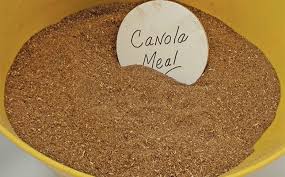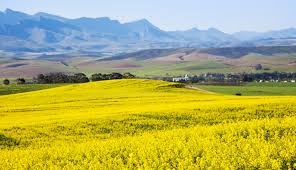The Ultimate Guide to Starting and Running a Successful Canola Farming Operation in South Africa
Are you considering venturing into canola farming in South Africa? With the growing demand for canola oil, animal feed, and biofuel, canola farming presents a lucrative agribusiness opportunity. However, success in this industry requires strategic planning, the right location, and an effective marketing strategy to attract loyal and repeat customers.
In this comprehensive guide, we cover everything you need to know about starting a profitable canola farming business, from land preparation to finding a professional farming business plan writer and securing reliable buyers.
Why Canola Farming is a Profitable Business in South Africa
South Africa’s Western Cape is the primary canola-producing region, thanks to its Mediterranean climate and well-established agricultural infrastructure. Canola is a high-value crop with multiple uses, including:
✅ Edible Oil Production – Canola oil is in high demand in both local and international markets.
✅ Animal Feed – Canola meal is a nutritious feed for livestock and poultry.
✅ Bio-fuel Industry – Canola oil is a growing component in the bio-fuel industry.
With the rising health-conscious consumer market, canola oil is a preferred alternative to traditional vegetable oils.
How to Start a Canola Farming Business in South Africa
Starting a canola farming operation requires thorough planning and investment. Below are the key steps to help you establish a profitable farm:
1. Conduct Market Research
Before planting your first canola crop, conduct extensive research on:
- Local demand and pricing for canola oil and by-products.
- Potential competitors and their farming strategies.
- Distribution channels for selling your canola, including direct sales to processing plants and local cooperatives.
2. Select the Right Farmland
The best regions for canola farming in South Africa include:
📍 Western Cape – Ideal Mediterranean climate and high rainfall.
📍 Eastern Cape & KwaZulu-Natal – Suitable in select areas with well-drained soil.
📍 Free State & Mpumalanga – Potential for canola expansion due to favorable soil conditions.
Key considerations when choosing farmland:
✔ Well-drained soil with a pH of 5.5–7.0.
✔ Access to reliable water sources for irrigation.
✔ Proximity to markets and processing plants.
3. Land Preparation & Planting
- Prepare the soil by plowing and adding organic matter.
- Conduct soil tests to determine nutrient requirements.
- Apply fertilizers rich in nitrogen, phosphorus, and sulfur.
- Sow certified canola seeds at the right planting depth for optimal germination.
4. Pest and Disease Management
Canola crops are vulnerable to pests and diseases, such as:
🛑 Aphids – Controlled using insecticides or natural predators.
🛑 Blackleg Disease – Prevented by crop rotation and fungicide applications.
5. Harvesting and Storage
Canola is ready for harvest when:
✔ The pods turn brown and seeds reach 8–10% moisture.
✔ A combine harvester is used for mechanical harvesting.
✔ Proper storage is necessary to prevent spoilage and maintain oil quality.
Where and How to Find a Professional Farming Business Plan Writer
A well-crafted business plan is essential for securing funding, managing operations, and ensuring long-term profitability. If you’re looking for a professional farming business plan writer, consider the following options:
🔹 Online Business Plan Writing Services – Many experts specialize in agribusiness plans and can customize a plan for your canola farm.
🔹 Agricultural Consultants – South Africa has several agriculture-focused consulting firms that provide professional business planning services.
🔹 Government & NGO Programs – Some organizations offer free or subsidized business plan assistance for farmers.
When selecting a business plan writer, ensure they:
✅ Have experience in agricultural business planning.
✅ Understand South Africa’s farming regulations.
✅ Provide detailed financial projections and market analysis.
How to Find Loyal and Repeat Customers for Your Canola Farm
Building a sustainable customer base is key to long-term success. Here’s how to attract and retain buyers:
1. Partner with Local Processors & Manufacturers
Establish direct relationships with canola oil producers, feed manufacturers, and biodiesel plants to secure long-term contracts.
2. Supply to Retailers & Supermarkets
If you plan to process your own canola oil, target grocery stores, supermarkets, and health food stores for bulk orders.
3. Join Agricultural Cooperatives
Being part of a farming cooperative allows you to pool resources, access better pricing, and secure larger contracts.
4. Sell Directly to Consumers
Consider setting up a farmers’ market stall or an online store to sell organic and cold-pressed canola oil.
5. Build a Strong Brand & Marketing Strategy
- Create a website & social media pages showcasing your canola products.
- Highlight the health benefits of canola oil to attract health-conscious buyers.
- Network with restaurants, bakeries, and food manufacturers to become their preferred supplier.
Final Thoughts
Starting a canola farming business in South Africa requires proper planning, market research, and access to expert guidance. By following these steps, you can establish a profitable and sustainable farming operation.
If you’re ready to take the next step, consider hiring a professional farming business plan writer to structure your business model and financial projections. Additionally, implementing a solid marketing and sales strategy will ensure you find loyal and repeat customers.
💡 Are you planning to start a canola farm? Let us know your biggest challenges in the comments below! 🚜🌱




